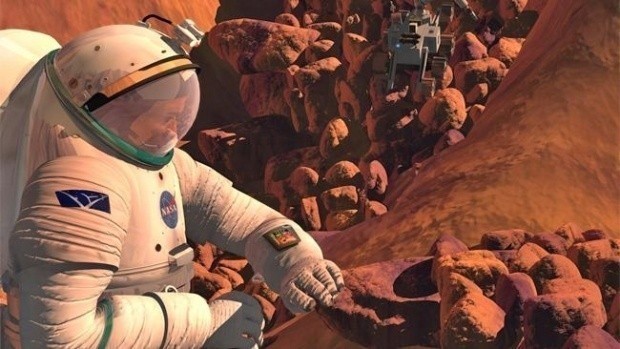It wasn't all that long ago when it was thought to be impossible for man to set foot on Mars. But that hasn't stopped the likes of NASA researching continuously to find out if there's a way to accomplish it without kicking the bucket (short or long term).
However, recent studies have determined that a mission to the Red Planet would be a significant health concern for those willing to suit up for the 3 year return trip (if a one year stay on the planet is factored in).
Researchers at Marquette University in Milwaukee, Wisconsin have taken samples of tissue from nine US and Russian astronauts who spent around six months on the International Space Station. Biopsies were taken 45 days before launch and again on the day of return. The results showed dramatic muscle atrophy which was caused by a prolonged period in zero gravity.
Professor Robert Fitts of the aforementioned University stated that the losses in fibre mass, force and power translated into a decline of more than 40 per cent in the capacity for physical work. Given the amount of time using current rocket technology to reach Mars, by the time they got there they would tire very easily of even the simplest of routine tasks, especially so when wearing a space suit.
This is not the only concern, either. It has also been pointed out that astronauts would face cancer-causing damage to DNA from cosmic radiation, loss of bone density and also mental stress from prolonged incarceration.
Nonetheless, the pursuit to find a way around these setbacks and make the next giant step for mankind continues. In June six men from Europe, Russia and China were locked away in a mock spaceship in a Moscow Research Institute for a year and a half for the purposes of simulating a manned mission to Mars.
NEWS SOURCE:news.com.au
Newsletter Subscription
Similar News


